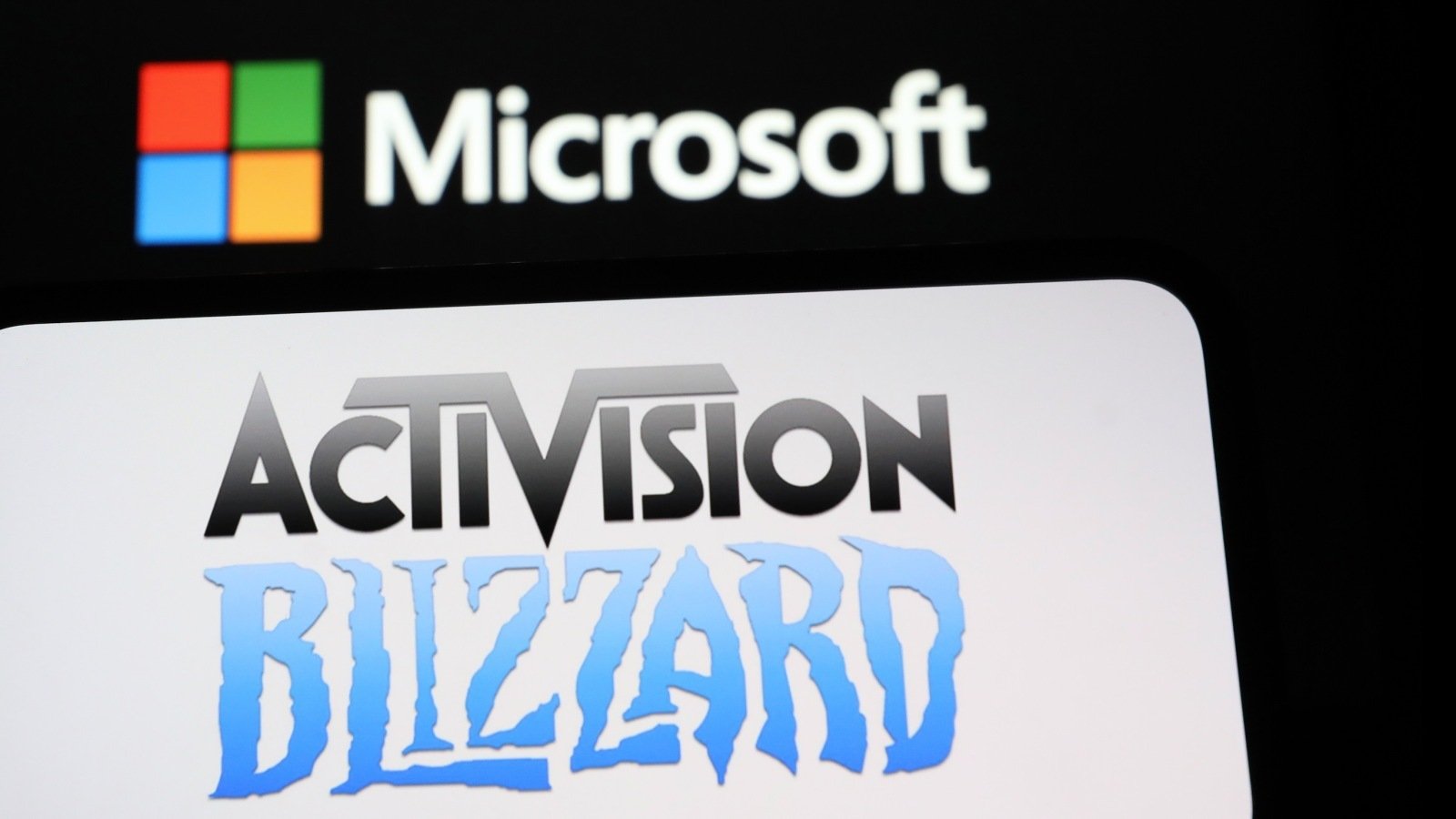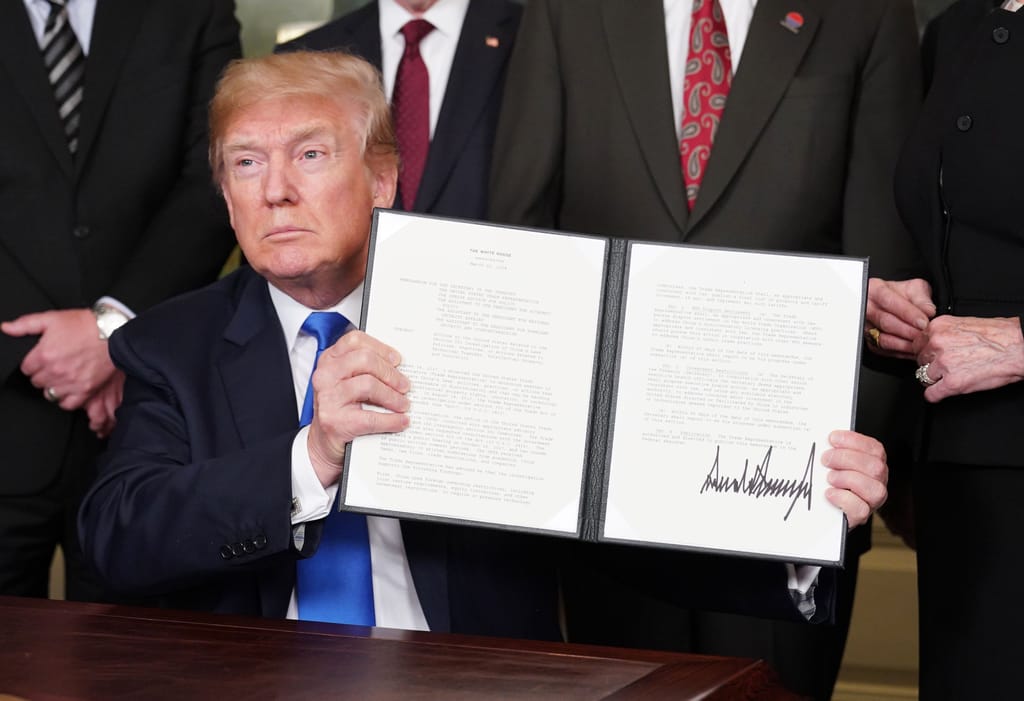FTC Challenges Microsoft's Activision Blizzard Acquisition

Table of Contents
The FTC's Antitrust Concerns
The FTC's primary concern centers on the potential for reduced competition in the video game market, specifically within the lucrative console gaming sector. The commission argues that the merger would give Microsoft an unfair advantage, stifling innovation and harming consumers. This concern stems from several key factors:
- Dominance in Subscription Services: Microsoft's Game Pass subscription service is a major competitor, and acquiring Activision Blizzard's vast library of games would significantly strengthen its position, potentially pushing out rival subscription services.
- Control Over Key Game Franchises: Activision Blizzard boasts immensely popular franchises like Call of Duty, World of Warcraft, and Candy Crush. The FTC argues that Microsoft's control over these franchises could be leveraged to exclude competitors and limit consumer choice.
- Potential for Stifling Innovation: The FTC worries that Microsoft's increased market power could lead to reduced innovation, as the company might have less incentive to compete aggressively on price, quality, or features.
Specific examples supporting the FTC's argument include:
- Market share analysis: Post-acquisition, Microsoft would control a significant portion of the gaming market, potentially creating a monopoly.
- Competitive harm: The FTC highlights how exclusive titles on Game Pass could harm competitors like Sony PlayStation, which relies on attracting players with exclusive titles.
- Impact on pricing and consumer choice: Reduced competition could lead to higher game prices and fewer choices for consumers.
- Past antitrust cases: The FTC points to Microsoft's history of antitrust battles as evidence of its potential to engage in anti-competitive behavior.
Microsoft's Defense Strategy
Microsoft has countered the FTC's claims, arguing that the acquisition will benefit consumers through increased competition and innovation. Their defense strategy focuses on several key points:
- Cross-Platform Compatibility: Microsoft has pledged to keep Call of Duty and other Activision Blizzard titles available on PlayStation and other platforms, mitigating concerns about exclusivity.
- Benefits to Consumers: Microsoft argues that the merger will bring more games to more players through Game Pass, leading to wider access and affordability.
- Investment in Game Development: Microsoft emphasizes its continued investments in game development and distribution, suggesting that the acquisition will stimulate innovation, not stifle it.
Specific points of Microsoft's defense include:
- Maintaining Call of Duty on PlayStation: This commitment aims to directly address one of the FTC's most significant concerns.
- Expanding Game Pass offerings: Microsoft highlights the potential for a significantly enhanced Game Pass catalog.
- Investment in new game development: Microsoft plans to expand its game development capabilities with the acquisition, increasing competition in the market.
Potential Outcomes and Implications
The outcome of the FTC's challenge remains uncertain. Several scenarios are possible:
- Successful Block of the Acquisition: The FTC could successfully block the merger, forcing Microsoft to abandon its bid.
- Modified Acquisition: The FTC might allow the acquisition to proceed only after Microsoft agrees to significant concessions, such as divesting certain assets or making binding commitments.
- Settlement: Microsoft and the FTC could reach a settlement that addresses the commission's concerns.
Broader implications for the gaming industry include:
- Impact on future M&A: The case will set a precedent for future mergers and acquisitions in the tech industry.
- Future of game subscription services: The outcome will influence the growth and competitiveness of subscription-based gaming models.
- Regulatory landscape: The case could lead to stricter regulatory scrutiny of tech mergers in the future.
Specific potential impacts:
- Stock prices: The outcome will significantly impact the stock prices of both Microsoft and Activision Blizzard.
- Precedent for future tech mergers: This case will significantly impact how future tech mergers are reviewed by regulators.
- Game developers and publishers: The decision will influence how developers and publishers interact with platform holders.
- International regulatory responses: Regulatory bodies in other countries, like the EU, are also reviewing the merger, and their decisions could further influence the outcome.
The Role of Other Regulatory Bodies
The involvement of other regulatory bodies adds another layer of complexity. The European Union, for instance, is also scrutinizing the deal. Their decisions could be pivotal, even if the FTC allows the acquisition. Different regulatory bodies may adopt different approaches, leading to varying outcomes across jurisdictions.
- EU regulatory actions: The EU's antitrust authorities are conducting their own review of the merger, potentially reaching a different conclusion than the FTC.
- Differing regulatory approaches: This highlights the challenges of navigating global regulatory landscapes for large-scale mergers.
Conclusion: The Future of the FTC's Challenge to Microsoft's Activision Blizzard Acquisition
The FTC's challenge to Microsoft's Activision Blizzard acquisition is a landmark case with far-reaching consequences for the gaming industry and beyond. The FTC's concerns about reduced competition and the potential for anti-competitive practices are significant. Microsoft's counterarguments emphasizing consumer benefits and cross-platform compatibility offer a contrasting perspective. The ultimate outcome will significantly shape the future of the gaming industry, influencing mergers, acquisitions, subscription models, and the regulatory environment. Stay informed about further developments in this critical case by following reputable news sources and legal updates. The future of the gaming landscape hinges on the resolution of the FTC’s challenge to Microsoft’s Activision Blizzard acquisition.

Featured Posts
-
 Freed Hostages Berger And Weiss To Participate In March Of The Living
May 26, 2025
Freed Hostages Berger And Weiss To Participate In March Of The Living
May 26, 2025 -
 Jadwal Lengkap Moto Gp Argentina 2025 And Sprint Race
May 26, 2025
Jadwal Lengkap Moto Gp Argentina 2025 And Sprint Race
May 26, 2025 -
 Jadwal Lengkap Moto Gp Inggris Di Silverstone Update Klasemen And Marquez
May 26, 2025
Jadwal Lengkap Moto Gp Inggris Di Silverstone Update Klasemen And Marquez
May 26, 2025 -
 Pogacars Solo Breakaway Secures Tour Of Flanders Win
May 26, 2025
Pogacars Solo Breakaway Secures Tour Of Flanders Win
May 26, 2025 -
 Gold Investment Rises Amidst Trumps Eu Trade Dispute
May 26, 2025
Gold Investment Rises Amidst Trumps Eu Trade Dispute
May 26, 2025
